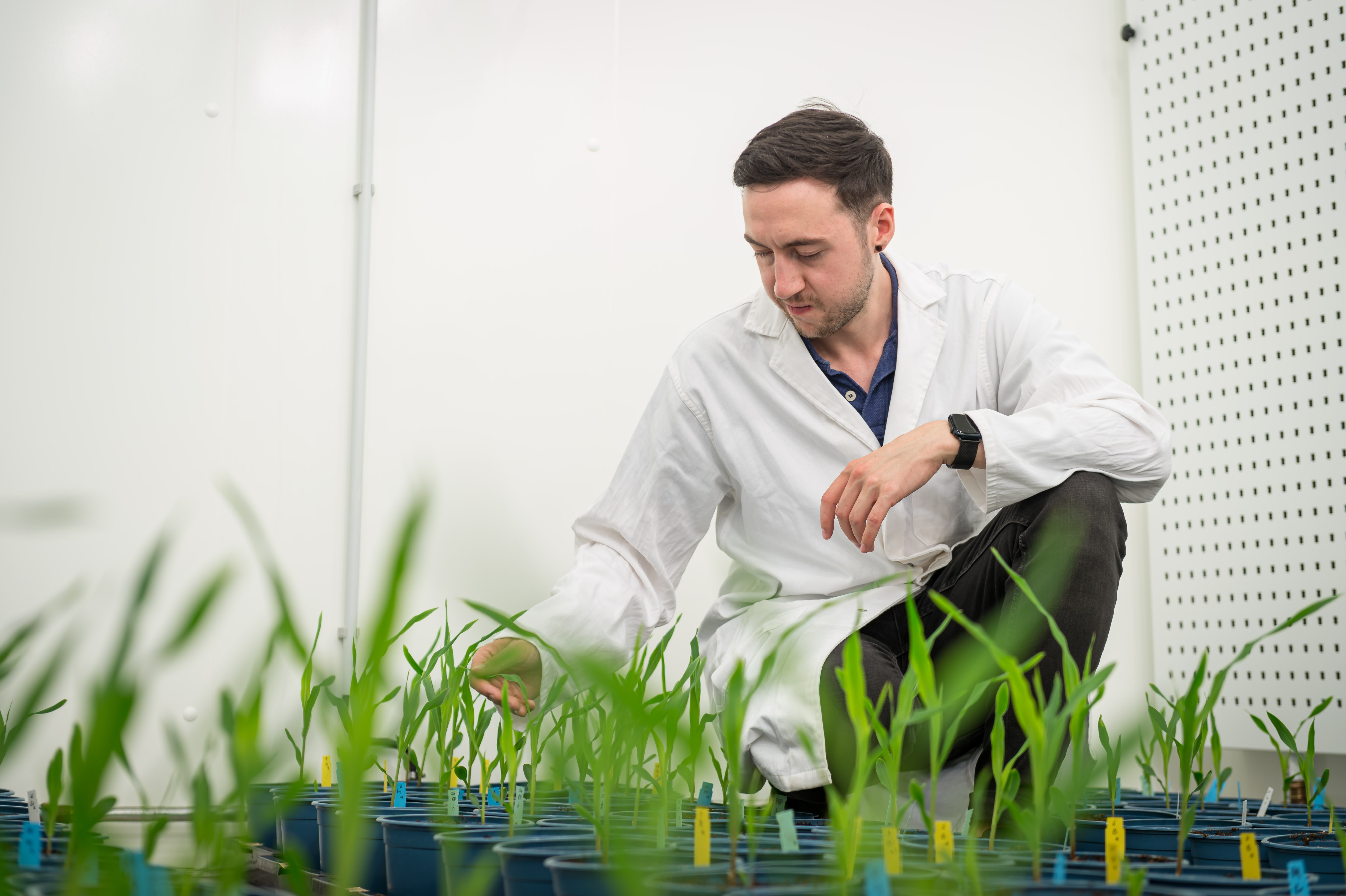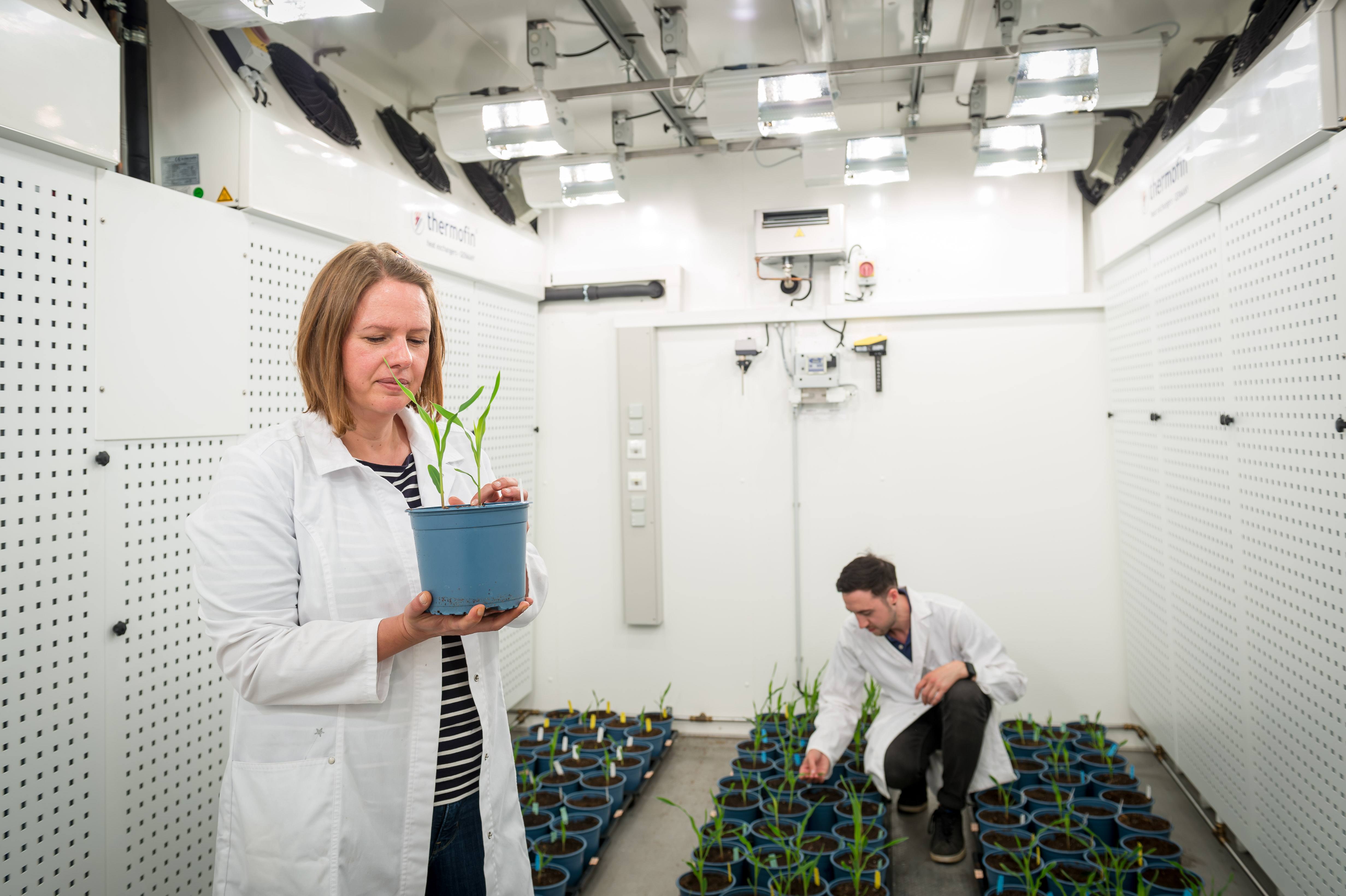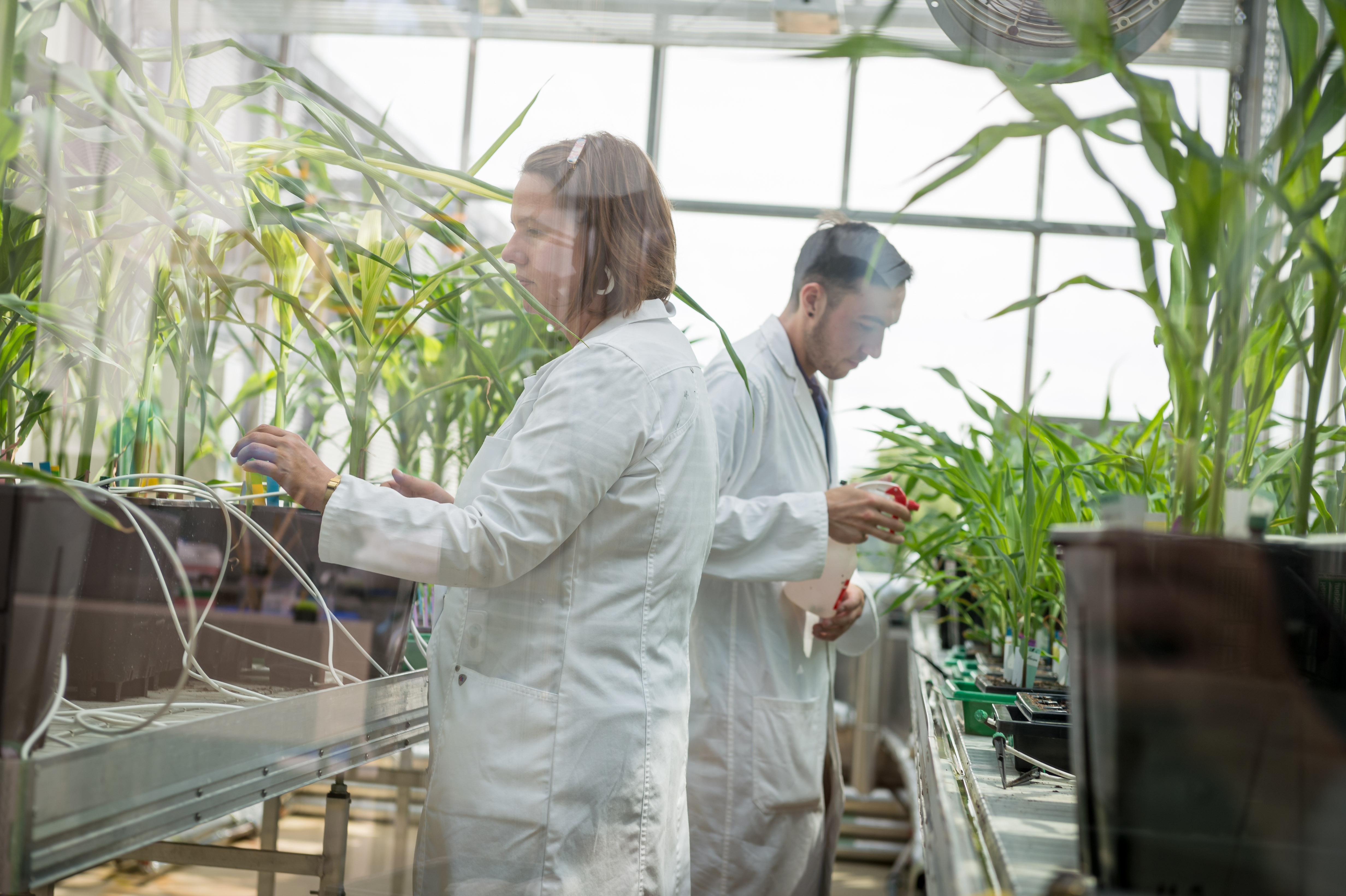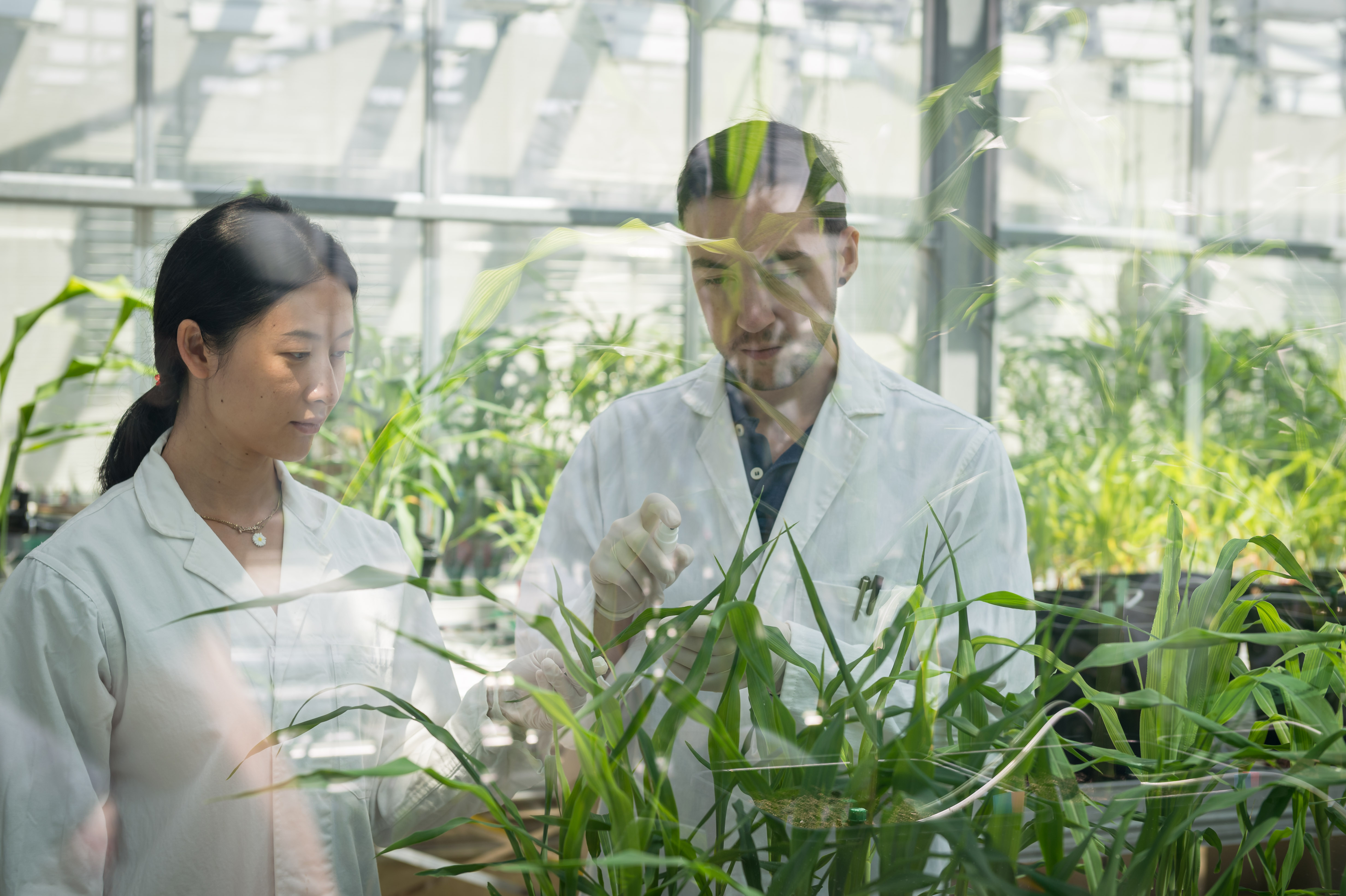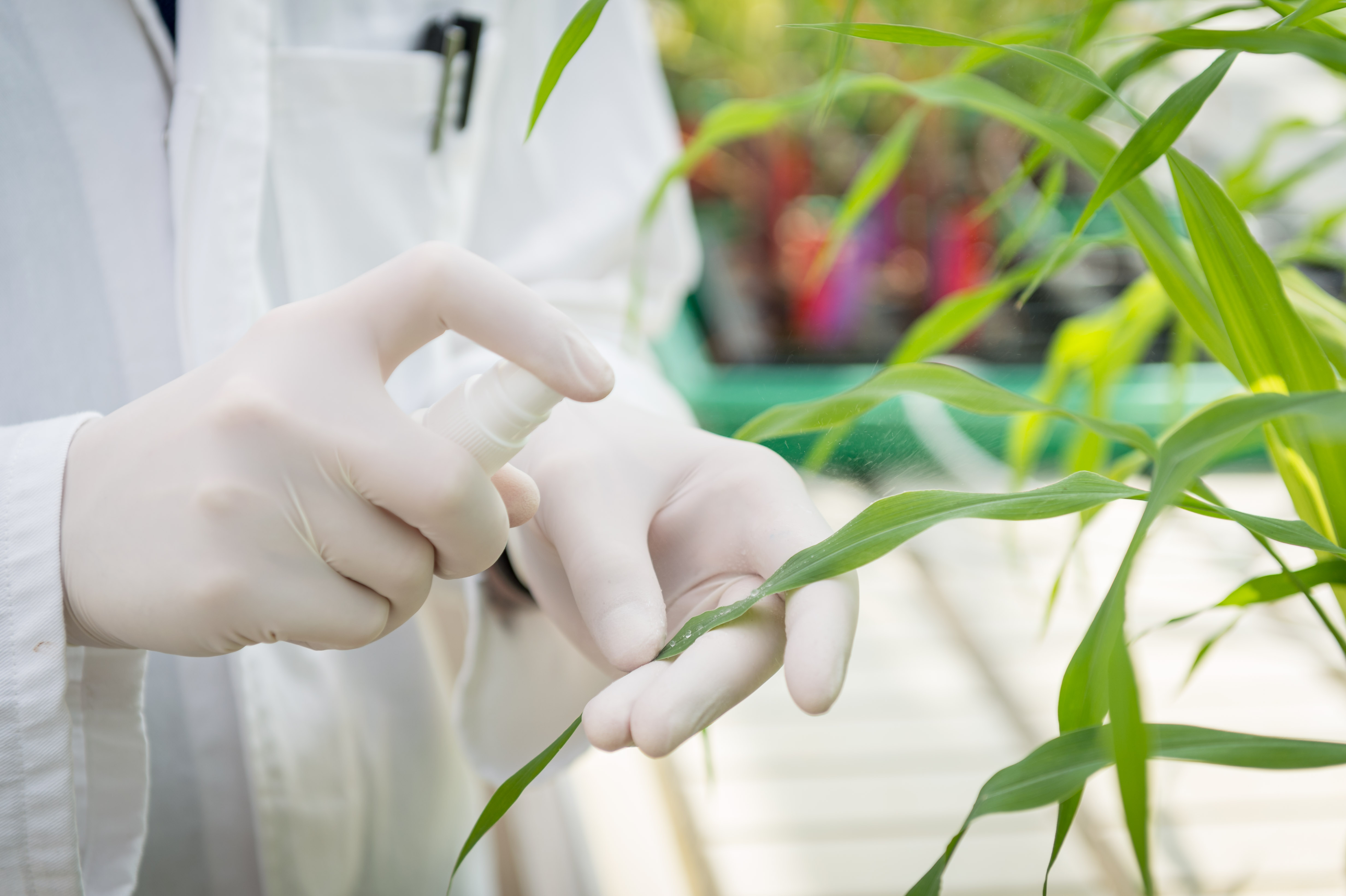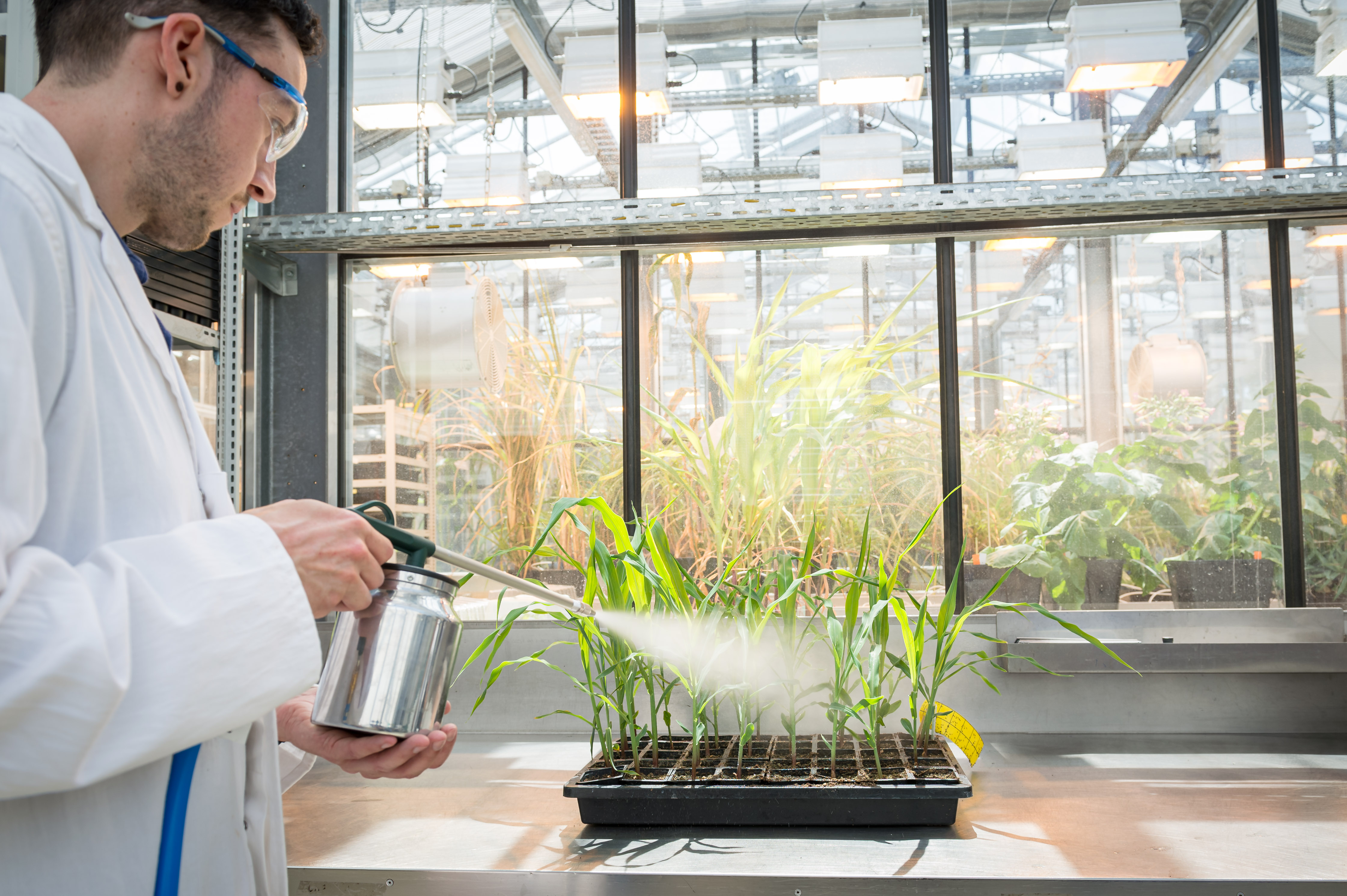SP 7: Improving the disease tolerance of maize
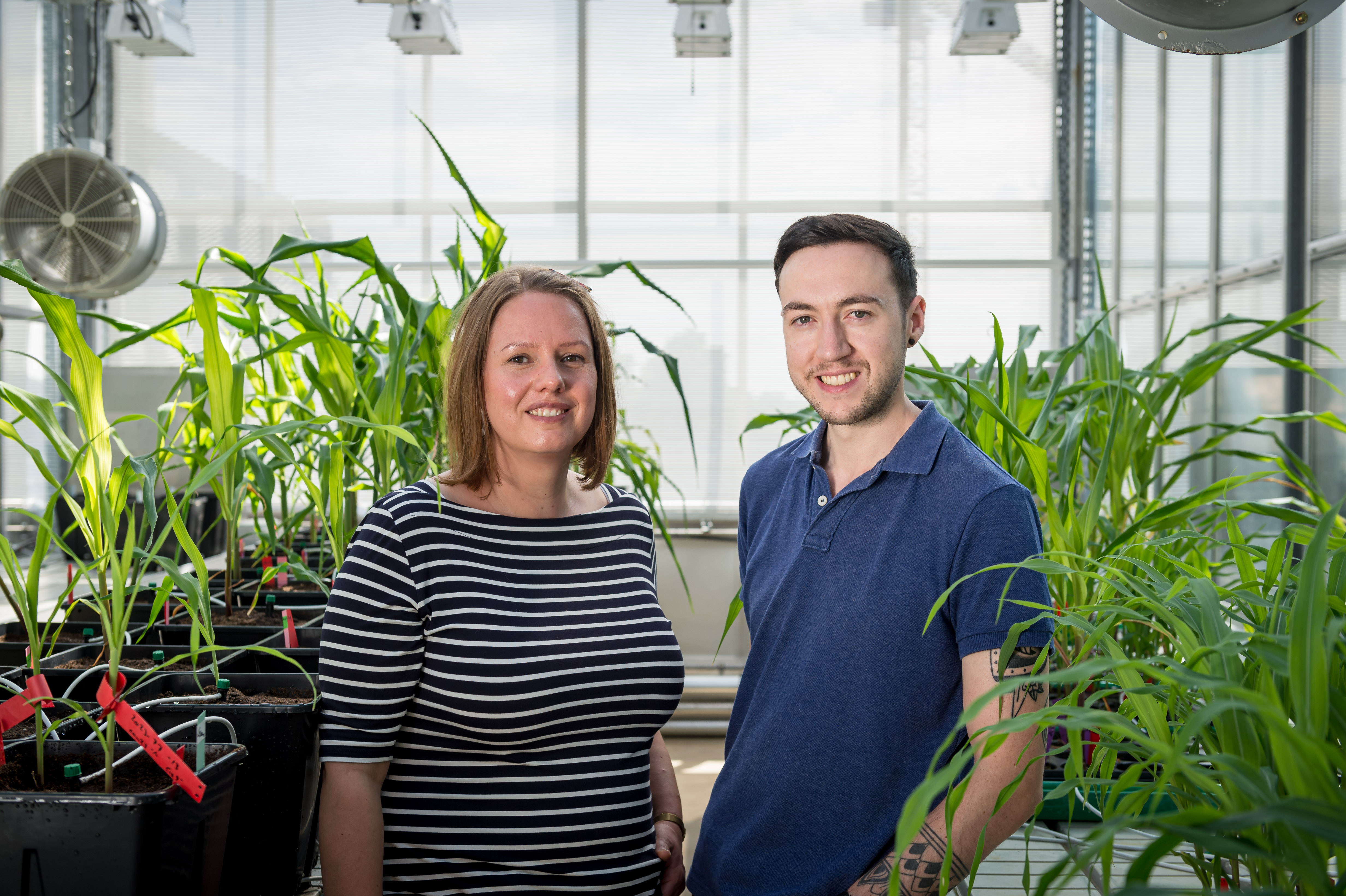
Project manager: Dr. Karina van der Linde
Scientific staff: Christian Schwarz
Climate change induced alterations of abiotic conditions, which are predicted for the next decades in Bavaria, can impact biotic interactions in agriculture, e.g. plant pathogen interactions. This includes the infection of maize with the pathogen Ustilago mayids causing corn smut disease, which commonly occurs in Bavaria. The corn smut infection impairs plant biomass production, maize silage properties and feed uptake by cattle. Moreover, infected sweet corn cobs and kernels are not marketable because of their unappetizing appearance. Up to now no resistant maize variety has been identified and no effective fungicide is available in agriculture. Application of exogen RNAs to induce post transcriptional gene silencing (PTGS) offers a novel opportunity to protect plants against pathogens in agriculture.
The project aims to improve the disease tolerance of maize today and under altered abiotic conditions in the future, as result of climate change, and thus contributes to the climate change adaption of crop production in Bavaria.
Poster kick off meeting (German)
Project description kick off meeting (German)
Final Event
Poster Project description Final report
(German language only)

